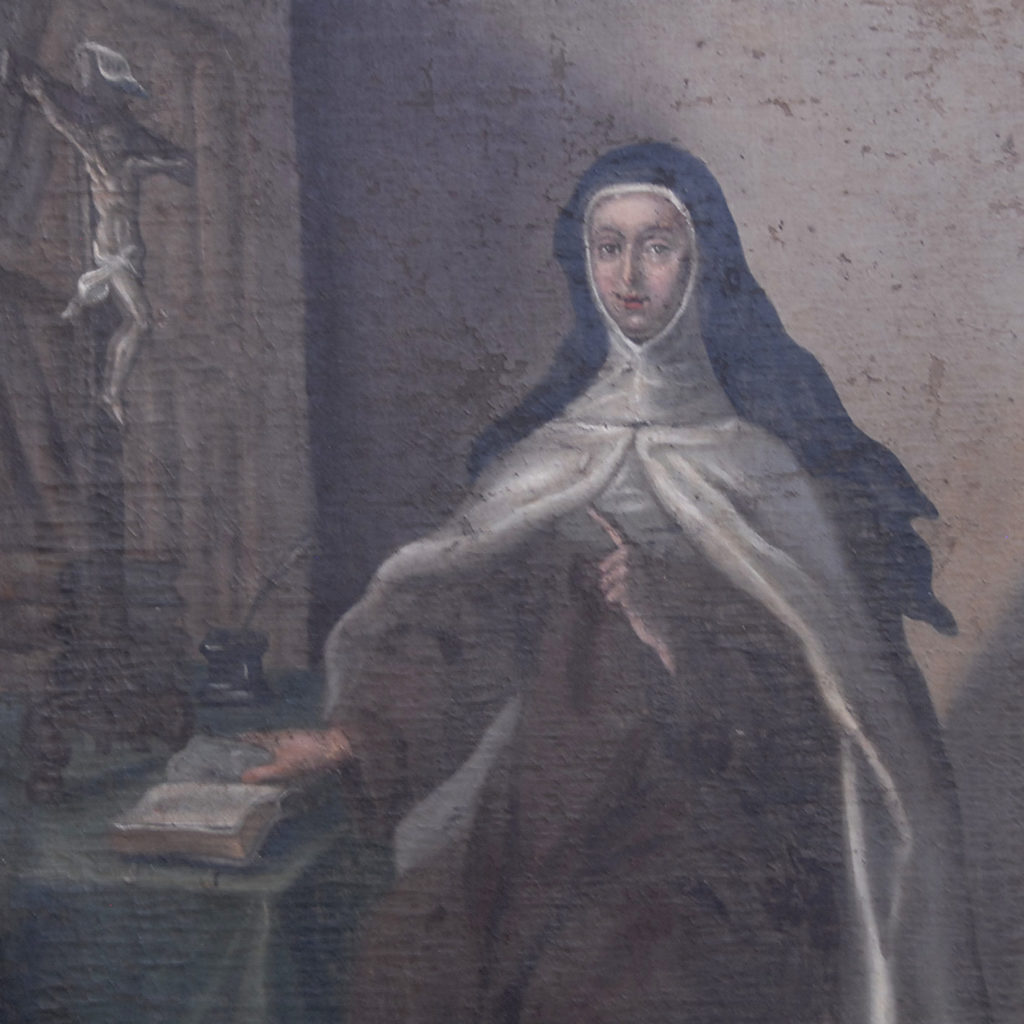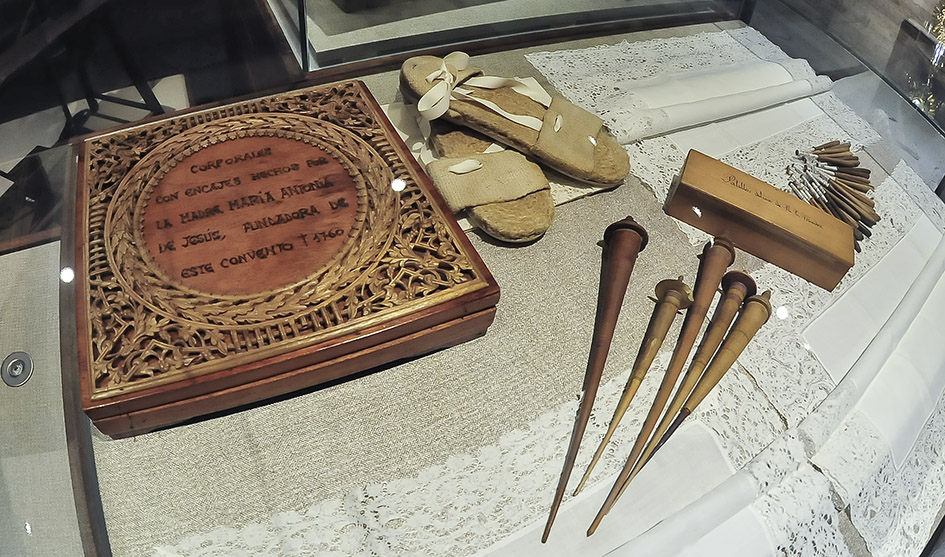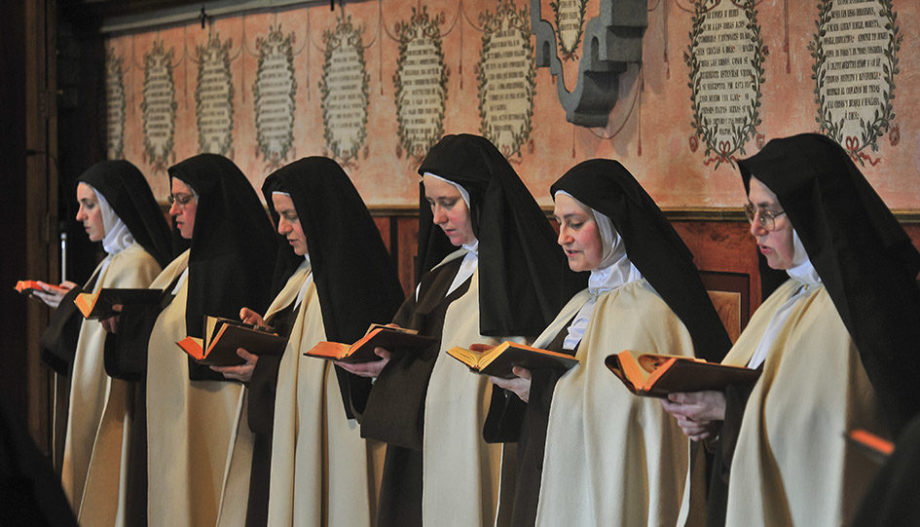 "Consecrated life cannot fall into a false theology of merit."
"Consecrated life cannot fall into a false theology of merit." "We are to take care of what we are and what we have been called to."
"We are to take care of what we are and what we have been called to."We move back in time to the 18th century, to surprise the protagonist of our story. Maria Antonia Pereira y Andrade (1700-1760) is between 27-28 years old. Although born in the place of O Penedo (Cuntis), now lives in the port city of Baiona, where she has married Juan-Antonio Valverde. They have two children, and like so many Galician men, her husband asks her to emigrate to the south of Spain to earn more money to raise their family's standard of living. He insists so much that María Antonia gives him permission, on the condition that he does not take too long to return home...
Neither of them knew that this separation would be definitive, because God burst with force into the heart of Maria Antonia, who, being alone, began a life of intense prayer and piety.
One night he receives a mystical experience - the first, we could say - in which he hears the voice of the Crucified One before whom he is praying, who says to him: "Turn away from the occasion where you may offend me and follow me."
The burning of God's Love
Here another Maria Antonia is born, her life is marked by the burning of the Love of God which, igniting in her soul, also lights the fire of love of neighbor, the zeal for the good of souls, for the conversion of sinners and non-believers.

God is "the Master within". that enlightens her. Maria Antonia is illiterate, so she always tries to discern everything with her confessor. She has a great light on obedience, so as not to fall into illusions of fantasy: she lets herself be discerned.
One day, while he was in his usual prayer, God made him a promise: "You will be the founder of a convent.". She wonders, like the Virgin at the Annunciation: "What will this be like?" Married, with two children, with her husband, who, although far away, continues to love each other...
"If you want me to have them, you bring them!"
God, however, is inspiring her to take a vow of chastity, he tells her that he wants her to have more children than the two she has, and the young Maria Antonia responds to him: "If you want me to have them, you bring them!". Up to thirteen girls from the village gathered together and were initiated into the spiritual life, prayer and frequenting the sacraments, all with great desires to become religious, although finally only three of them consecrated themselves to God.
The promise of the foundation of the convent in Compostela always hammered in his thoughts: Of what Order, where, how and when?
Driven by an inner motion, she asked her husband for permission to wear the habit of Our Lady of Mount Carmel, as devout women were accustomed to do (called "uncovered"). Later, the other three disciples, who would become religious like her, would do the same.
To the Virgin of Carmen
Our protagonist knows that there is an Order dedicated to the Virgin of Mount Carmel, which is dedicated to a life of prayer, love and worship of the Virgin. "the divine Queen", and he understood that this was the Order that God was pointing out to him. In fact, he hardly knew anything about it, nor about its foundress, the illustrious Saint Teresa of Jesus! That is why, when he fortuitously read the life of the saint from Avila, his Road to PerfectionThen, full of courage, she set out with the three young companions to Seville, where her husband was, to ask him for canonical separation, so that she could enter as a religious and help her companions to do the same. Their pilgrimage through Portuguese lands is incredible: they cross the entire Kingdom on foot, from north to south, until they reach Zafra, and from there, to Seville.
On the eve of the feast of our holy Patriarch St. Joseph, after a night of prayer, of "fight with God"Her husband not only gives her permission, but also feels within himself the desire to become a religious himself, in the same Order that his wife chooses.

Before her entrance, Maria Antonia tried to found with five of her disciples a Carmel in Santiago de Compostela, just after her return from Seville, while she was still a laywoman. She was moved by zeal for souls, and by an inordinate love for the Virgin of Carmel, who had no house of hers in Galicia, with the regret that the young women with a Carmelite vocation had to go to Castile.
"You will be the founder of a convent."
Not being able to found then, the two spouses fulfill the vow of becoming religious. They entered the Order of the Discalced Carmel on St. Joseph's Day in Alcalá de Henares, he in the Fathers and she in the Mothers of the Discalced Carmel. Corpus Christi. Maria Antonia is 32 years old.
But the promise: "You will be foundress of a convent." Although calm, she remained alive under the ashes, and God rekindled the very lively fire of desire for the good of souls and for His glory. By providential means, everything was resolved, and on October 15, 1748, the foundresses arrived in Santiago de Compostela. It was the feast of St. Teresa! Thus the Lord had revealed it to them in a vision, in which they saw the Galician girls dressed in their traditional costumes, in a Jubilee Year (Jacobean Holy Year, like the one we are living today). Mother Maria Antonia comes as one more in the group.
Shortly after the foundation was made, she was named prioress of the new community, and, as the Lord said to her with loving words, she was named prioress of the new community: "the child - the foundation - is returned to its own mother".
She died in the odor of sanctity on March 10, 1760, and in 2018 she was declared Venerable by Pope Francis. We could not end this review without highlighting something that is of fundamental importance: when searching for the name of a Galician woman writer of the 18th century, the result is practically null. Only in the following century, four great literary women awaken the feminine soul of this land. With the Autobiography of Mother Maria Antonia -which has just been published for the first time (Editorial Mount Carmel)-, a just recognition is given to the first Galician Carmelite mystic and writer, who emerges from the shadows of the history of the XVIII century, showing a feminine profile of the Galician soul that was unknown. With her, a lamentable emptiness that impoverished our culture is saved, and a semblance of a female soul that was unknown appears. "old and new"The first one was that of Mother María Antonia de Jesús, who would be known among her people as "A Monxiña do Penedo" (The Monxiña of Penedo).











